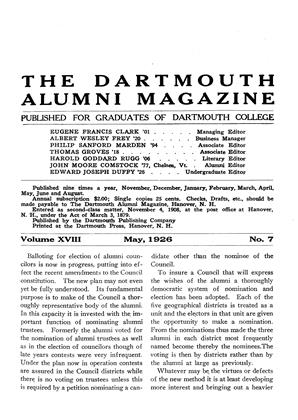by Herman Feldman. Harpers, New York City. Those readers of this magazine who are especially interested in the subject have probably already read one or more reviews of Mr. Feldman's book on "The Regularization of Employment." Several have been published in periodicals concerned with industrial relations.
Each of these reviews has commended the book as a valuable addition to the literature on this subject, but each has stressed a different remedy as the author's most important contribution to the solution of the problem. Thus one cites the evidence that scientific management is the key to the situation, while another hails the day when simplification of styles and standardization of products will make control of production and organization certain and general.
Most of the reviews have been devoted to an appraisal of the remedies proposed or discussions of the experiments which are related.
The first section of the book in which the causes of irregular employment are enumerated and the trend is estimated is particularly well written. The author's conclusion that growth and increasing specialization of industrial organization has tended to increase rather than reduce irregularity of employment is significant.
The discussion of methods and plans for the reduction of employment is made comprehensive and concrete by the inclusion of a number of experiments which have been undertaken by particular industrial organizations.
The more traditional social and governmental remedies such as long range planning of public works, the coordination and extension of public employment offices and the applicability of unemployed insurance are also discussed in considerable detail.
The book has left one layman at least with the conviction that neither the government nor particular companies can contribute very heavily to the ultimate solution of this problem, but rather that is is a responsibility which must be assumed by industry in general and solved by each industry for itself in particular. Capable agencies are already available for this purpose in the national trade asociations which represent the most progressive companies of each important American industry.
The book might well serve as an inspiration and a source of information for committees on Regularization of Employment in each of these national associations.
The March 1926 issue of Industrial Management contains an article by Professor Herman Feldman entitled "Guaranteeing Full Time Earnings."
Professor Harry R. Wellman is the author of "Where Are Mail Order Houses Going ?" which appears in the March issue of The Na-tions Business.
The Art Bulletin for September 1925 contains an article "Depth in Pictorial Art" by Professor Adelbert Ames, Jr.
Spring Skies
 View Full Issue
View Full Issue
More From This Issue
-
 Article
ArticleWATER FOR HANOVER AND THE COLLEGE
May 1926 By Robert Fletcher -
 Article
ArticleTHE UNDERGRADUATE CHAIR
May 1926 By L. J. Heydt -
 Article
ArticleTHE UNDERGRADUATE CHAIR
May 1926 By L. J. Heydt -
 Article
ArticleBalloting for election of alumni councilors is now in progress
May 1926 -
 Class Notes
Class NotesClass of 1916
May 1926 By H. Clifford Bean -
 Article
ArticleTHE DARTMOUTH GREEN
May 1926 By The Rev. Roy B. Chamberlin
Books
-
 Books
BooksShelflife
Mar/Apr 2006 -
 Books
BooksALL THE BEST IN JAPAN.
June 1958 By DONALD BARTLETT '24 -
 Books
BooksLINDSAY’S PROMISE. THE DREAM THAT FAILED. A PERSONAL ACCOUNT.
OCTOBER 1970 By H. Wentworth Eldredge ’31 -
 Books
Books"The Law as a Vocation"
October 1919 By JAMES P. RICHARDSON -
 Books
BooksWALT WHITMAN RECONSIDERED.
December 1955 By KENNETH A. ROBINSON -
 Books
BooksCONFESSIONS OF ANOTHER YOUNG MAN
November 1936 By Samuel French More '36


